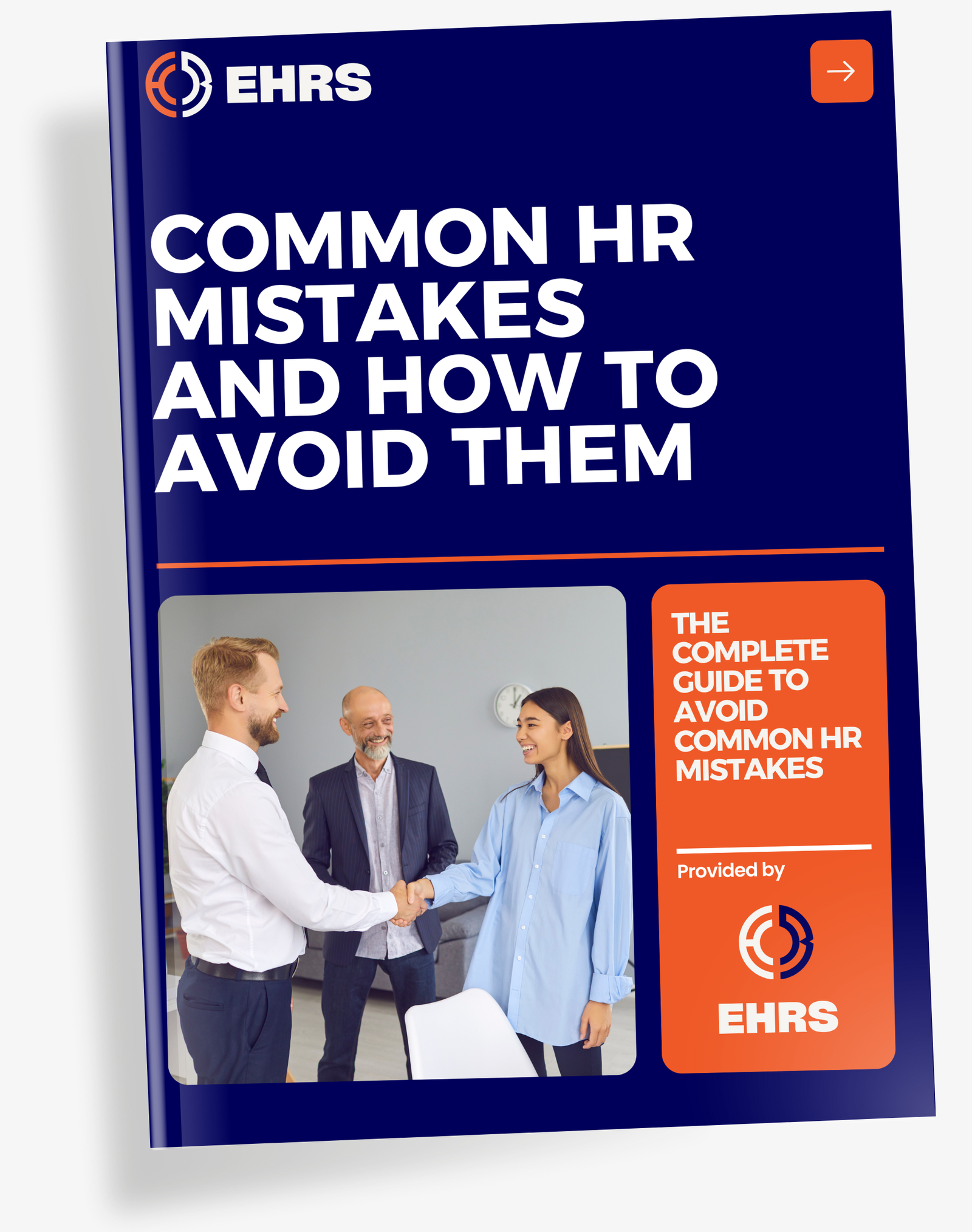Struggling with payroll compliance in Lithuania? Navigating taxes, social security, and employment laws can overwhelm even seasoned businesses.
This comprehensive guide covers Lithuania’s payroll essentials—from progressive income tax rates (20% up to €90,246, 32% beyond) and mandatory 19.5% employee social contributions to critical leave entitlements like 20 annual days and parental leave. You’ll explore step-by-step salary calculations, employer obligations (1.77% for permanent contracts), and avoiding SODRA penalties.
Learn how to manage the monthly payroll cycle, minimum wage of €1,038, and 16 public holidays—all while maintaining compliance and optimizing workforce management.
Understanding the core components of payroll in Lithuania
Expanding into Lithuania requires precise payroll management to ensure legal compliance and employee satisfaction. As a Baltic country with a growing economy, Lithuania attracts foreign investors through competitive labor costs and structured social security frameworks. Payroll in Lithuania involves navigating tax regulations, social security contributions, and labor laws. This guide breaks down essential elements including tax rates, mandatory social security obligations, and employment standards. Understanding these factors helps businesses avoid penalties while maintaining workforce stability. For streamlined operations, consider consulting managing payroll experts familiar with local requirements.
Employer registration and compliance
Lithuanian law mandates that foreign and domestic employers register with two key authorities: the State Tax Inspectorate (STI) for income tax obligations and the State Social Insurance Fund Board (SODRA) for social security contributions. Registration with STI establishes a tax identification number, while SODRA enrollment ensures coverage for healthcare, pensions, and unemployment benefits. Failure to submit Form 1a-SDU to SODRA at least one business day before an employee’s start date results in fines. Accurate documentation prevents retroactive payments or penalties, which can reach up to €1,000 for repeated violations.
- Register with the State Tax Inspectorate (STI) using business registration documents to obtain a tax code.
- Register with SODRA to handle social security contributions, which fund pensions and healthcare access.
- Submit Form 1a-SDU for new hires before employment begins to activate social insurance.
- Verify data accuracy to avoid compliance risks, including retroactive payments or legal penalties.
The Lithuanian payroll cycle and minimum wage
Salaries must be paid by the 10th of the following month. The minimum wage is €1,038 monthly for unskilled workers, with projections showing steady increases outpacing many EU nations. Performance-based bonuses are common, though not mandatory. Income tax starts at 20%, rising to 32% for earnings over €90,246 annually. Social security contributions include 1.77%–2.49% from employers and 19.5% from employees, covering healthcare, pensions, and unemployment. Minimum wage increases in Lithuania reflect the country’s focus on improving living standards, directly affecting payroll budgets for businesses.
The standard workweek is 40 hours, with overtime capped at 8 hours weekly (paid at 150% for regular hours, 200% for night shifts). Annual leave guarantees 20 working days, with unused days typically carried over. Employees with 10+ years of service earn three extra days, increasing by one day every five years. Statutory benefits include employer-covered sick pay at 62.06%–100% for the first two days, with SODRA covering subsequent days at 62.06%. Maternity leave provides 126 days at 77.58% of salary, emphasizing the need for accurate payroll processing to avoid underpayments or legal risks.
A Deep Dive Into Lithuanian Taxes And Social Security Contributions
The Lithuanian payroll system combines progressive taxation with mandatory social security contributions. Employers and employees must understand these frameworks to ensure compliance and optimize financial planning. This system supports social stability while maintaining competitive labor costs in the Baltic region.
Personal Income Tax (PIT)
Lithuania applies a progressive Personal Income Tax (PIT) system. For 2024, the standard rate of 20% applies to annual incomes up to €90,246. Earnings beyond this threshold face a higher 32% rate. This structure affects salaries, bonuses, and in-kind benefits, known as taxable income.
Low- and medium-income earners benefit from a tax-exempt amount of €5,520, reducing their taxable base. This exemption applies to employees earning up to €34,370 annually. Employers act as tax collectors, withholding PIT monthly and remitting it to the State Tax Inspectorate (STI) by the 15th of the following month.
Employees exceeding the €90,246 threshold must either self-report the 32% liability or request increased withholding from their employer. Annual declarations are required for those with multiple income sources, due by May 1st. Taxpayers can also claim deductions for private pension plans or education expenses, up to 25% of taxable income, further reducing liabilities.
Social Security Contributions (SODRA)
Social security contributions in Lithuania are shared between employers and employees, managed by the State Social Insurance Fund (SODRA. Employees contribute 19.5% of their gross income, split into:
- 12.52% for pensions, sickness, and maternity (capped at €90,246)
- 6.98% for compulsory health insurance (uncapped)
Employers contribute 1.77% for permanent contracts and 2.49% for fixed-term contracts, covering unemployment and workplace accident insurance. All payments are due to SODRA by the 15th of the following month.
A 2025 study notes that wage gaps stem more from workforce composition than policy differences. For example, higher-skilled professionals dominate private sector roles, driving apparent disparities. This highlights how industry-specific demand influences earnings more than structural inequities.
Summary Of Payroll Taxes And Contributions
The table below consolidates key payroll obligations in Lithuania:
| Contribution Type | Employee Rate | Employer Rate | Applicable Income Ceiling (Annual) |
| Personal Income Tax (standard) | 20% | N/A | Up to €90,246 |
| Personal Income Tax (higher rate) | 32% on income above the threshold | N/A | Above €90,246 |
| Social Insurance (Pension, Sickness, Maternity) | 12.52% | N/A | €90,246 |
| Compulsory Health Insurance | 6.98% | N/A | No ceiling |
| Employer Social Contribution (permanent contract) | N/A | 1.77% | No ceiling |
| Employer Social Contribution (fixed-term contract) | N/A | 2.49% | No ceiling |
This structure emphasizes Lithuania’s balance between employee and employer responsibilities. Health insurance remains uncapped, while pension contributions stop at the €90,246 threshold. Employers must note annual adjustments to income ceilings, which rose to €114,162 in 2024—calculated as 60 times the national average wage of €1,902.70.
Understanding these frameworks helps businesses avoid penalties and leverage allowable deductions. Regular compliance with SODRA and STI requirements ensures smooth payroll operations in Lithuania’s regulated environment. Employers should also consider voluntary pension schemes, where employees can contribute an extra 3% to private funds, matched by a 1.5% state contribution, to enhance long-term financial security.
Navigating Lithuanian employment law and employee entitlements
Working hours, overtime, and public holidays
Lithuania mandates a 40-hour workweek, typically divided into eight-hour days across five weekdays. Most roles follow standard hours (e.g., 8:00–17:00 with a lunch break), though sectors like healthcare may require flexible shifts. Employees are guaranteed 11 consecutive hours of daily rest and 35 hours weekly, usually spanning weekends. Overtime compensation starts at 150% of the base rate for standard extra hours, rising to 200% for night work (22:00–06:00), weekends, or public holidays. Weekly limits cap regular overtime at 8 hours, extendable to 12 with written consent. Employers must maintain precise records—non-compliance risks fines up to €3,000 for repeated violations.
The country observes 16 public holidays annually, including New Year’s Day (Jan 1), Restoration of the State of Lithuania Day (Feb 16), and Christmas (Dec 25–26). Workdays preceding holidays shorten by one hour, a rule designed to ease pre-holiday preparation. Notably, holidays falling on weekends are not rescheduled. Employers must classify holiday work accurately to avoid disputes, as premium rates apply to these days.
Key leave entitlements
- Annual Leave: Employees earn at least 20 working days of paid leave yearly, with a mandatory 10-day continuous block. Unused days may carry over or be monetized upon termination. Employers often encourage full utilization to prioritize employee well-being.
- Sick Leave: Employers cover the first two days at 62.06%–100% of salary. From day three, SODRA pays 62.06% of the insured income, requiring medical certification for absences exceeding three days. Employees raising children with disabilities receive additional unpaid leave days.
- Maternity Leave: 126 calendar days paid at 77.58% via SODRA, contingent on 12 months of social insurance contributions in the prior 24 months. Minimum payments start at €242/month, with extra weeks for complicated births. Employers must preserve the employee’s role post-leave.
- Paternity Leave: Fathers receive 30 calendar days at 77.58% of salary, claimable within three months of birth. This period can be split into multiple blocks, offering flexibility for early childcare involvement.
- Parental Leave: Parents may take up to two years of leave, with payments tiered: 77.58% for the first year, 54.31% in the second. Each parent secures two non-transferable months, preventing simultaneous leave. Extending to 24 months reduces the second-year rate to 31.02%.
Lithuania’s labor framework balances employee welfare with employer accountability. Employers must embed these rules into payroll systems, ensuring compliance with SODRA audits. Clear communication of entitlements during onboarding reduces disputes, while strict adherence safeguards business reputation and financial stability.
From Gross to Net: A Practical Payroll Calculation and Termination Process
A Step-by-Step Gross-to-Net Salary Example
Calculating net salary in Lithuania involves understanding mandatory deductions. Let’s use a hypothetical gross salary of €2,500 per month.
- Step 1: Employee social security contributions (19.5% of gross salary): €2,500 × 0.195 = €487.50.
- Step 2: Personal income tax (PIT) at 20%: €2,500 × 0.20 = €500.
- Step 3: Net salary calculation: €2,500 (gross) – €487.50 (social security) – €500 (PIT) = €1,512.50.
This simplified example excludes variables like non-taxable amounts or additional contributions. For instance, employees earning below €34,370 annually may qualify for a €5,520 non-taxable allowance. Always verify thresholds and deductions, as regulations can change.
Termination of Employment and Payslip Requirements
Employment termination in Lithuania requires adherence to notice periods and severance rules:
- Notice periods: 30 days for employees with over a year of service; 14 days for shorter tenures.
- Severance pay.
- Less than 1 year: 0.5 month’s salary.
- 1+ years: 2 months’ salary.
Employers must include specific details in payslips, such as:
- Employer and employee details.
- Pay period and payment date.
- Gross salary and hours worked, including overtime.
- Deductions: PIT (20% or 32%), social security components (19.5% total for employees).
- Final net salary paid to the employee.
Accurate payslips ensure compliance and transparency, especially during termination processes.
Managing payroll in Lithuania demands precision, particularly with evolving tax rates and regulations. Miscalculations or non-compliance can lead to penalties or employee disputes. For businesses operating internationally, payroll administration across borders requires expertise to navigate local laws. Partnering with an HR outsourcing expert can streamline these processes, ensuring compliance and reducing administrative burdens.
Lithuania’s payroll system demands strict compliance with tax, social security, and labor laws. Accurate calculations and staying updated on evolving regulations are critical for businesses. Managing cross-border payroll can be challenging; partnering with an HR outsourcing expert or opting for payroll administration across borders ensures seamless compliance and operational efficiency.
Frequently Asked Questions (FAQ)
How does the payroll system work in Lithuania?
Lithuania’s payroll system operates on a monthly basis with specific requirements for employers and employees. Key elements include:
- Mandatory employer registration with the State Tax Inspectorate (STI) for tax purposes and the State Social Insurance Fund Board (SODRA) for social security
- Monthly payroll cycles with employee compensation due by the 10th day of the following month
- Structured tax and contribution deductions including 20% (up to €90,246) or 32% (above threshold) personal income tax and 19.5% social security contributions from employees
Employers must maintain strict compliance with tax and social contribution payment deadlines to avoid penalties.
What is the average hourly wage in Lithuania?
The minimum hourly wage in Lithuania varies based on the monthly minimum salary. As of 2024, with a minimum monthly salary of €924, this translates to approximately €5.50-€6.00 per hour based on standard working hours. Actual hourly rates depend on:
- Industry and job specificity, with skilled positions commanding significantly higher rates
- Work location, as urban centers like Vilnius typically offer better compensation
- Company size and international presence, with multinational corporations often paying premium rates
Actual hourly rates for experienced professionals in high-demand sectors can exceed €15-€20 per hour.
Is €3,000 a good salary in Lithuania?
€3,000 gross monthly salary represents a high-income level in Lithuania’s economic context. This amount:
- Exceeds the 2024 minimum monthly salary of €924 by more than three times
- Surpasses the average salary in most industries, particularly outside major urban centers
- Would support a comfortable lifestyle across most regions of the country
While living costs in Vilnius and Kaunas are higher than in other regions, this salary would still provide financial comfort. It’s particularly strong for professionals in logistics, manufacturing, or traditional sectors, though more common in IT, finance, and specialized technical fields.
How does the tax system function in Lithuania?
Lithuania’s tax system follows a structured framework for payroll processing. Key components include:
- Progressive personal income tax (PIT) with 20% on income up to €90,246 annually and 32% on amounts exceeding this threshold
- Employee social security contributions of 19.5% (12.52% for pension, sickness, maternity and 6.98% for health insurance) through SODRA
- Employer contributions of 1.77% for permanent contracts and 2.49% for fixed-term contracts
Employers serve as tax agents, responsible for withholding, reporting, and remitting taxes and contributions to STI and SODRA by the 15th of the following month.
What payment methods are commonly used in Lithuania?
Lithuania utilizes a modern financial infrastructure with several common payment methods:
- Bank transfers through domestic banks using the national payment system
- SEPA (Single Euro Payments Area) transfers for euro transactions within the EU
- SWIFT transfers for international payments outside the SEPA zone
The country’s growing fintech sector has established Lithuania as a European fintech hub, with numerous digital banks and payment providers supplementing traditional banking institutions.
What are the most common payment systems in Lithuania?
The most widely used payment systems in Lithuania include:
- Domestic bank transfers through Lithuanian financial institutions
- SEPA (Single Euro Payments Area) transfers for euro transactions within the EU
- SWIFT transfers for international payments beyond EU countries
With its advanced financial infrastructure, Lithuania also supports various digital payment solutions through its expanding fintech sector, including e-money institutions and digital banks.
What language do Lithuanians speak?
Lithuanian is the official language in Lithuania, spoken by nearly all citizens. The country maintains a multilingual business environment with:
- English widely taught in schools and spoken by professionals in business, technology, and finance
- Polish and Russian common among minority communities, particularly in eastern regions
- Proficiency in English among HR, accounting, and management professionals facilitating business operations
This linguistic diversity supports international business operations, particularly in urban areas like Vilnius and Kaunas where expatriate communities are more established.
What are the standard working hours in Lithuania?
In Lithuania, the standard working week consists of 40 hours, typically structured as 8 hours per day across 5 working days. Key characteristics include:
- Flexibility to arrange daily schedules differently while maintaining the weekly total
- Overtime regulations limiting regular overtime to 8 hours over 7 consecutive days and requiring 150% pay for overtime, 200% for night/weekend/holiday work
- Special provisions for night shifts (22:00-06:00) limited to 8 hours within a 24-hour period
Employers must provide at least 11 consecutive hours of daily rest and 36 consecutive hours of weekly rest to maintain legal compliance.
Which professions command the highest salaries in Lithuania?
The highest paying professions in Lithuania typically fall within these sectors:
- Information technology and software engineering, particularly for specialists in emerging technologies like AI, cybersecurity, and cloud infrastructure
- Senior financial professionals including financial directors, investment bankers, and specialized accountants
- Medical specialists in fields like cardiology, neurology, and radiology
- Engineering and technical experts in manufacturing, energy, and construction sectors
These roles often earn €4,000-€8,000+ gross monthly in major cities like Vilnius, significantly exceeding national averages. Compensation varies based on experience, company size, and location within the country.





